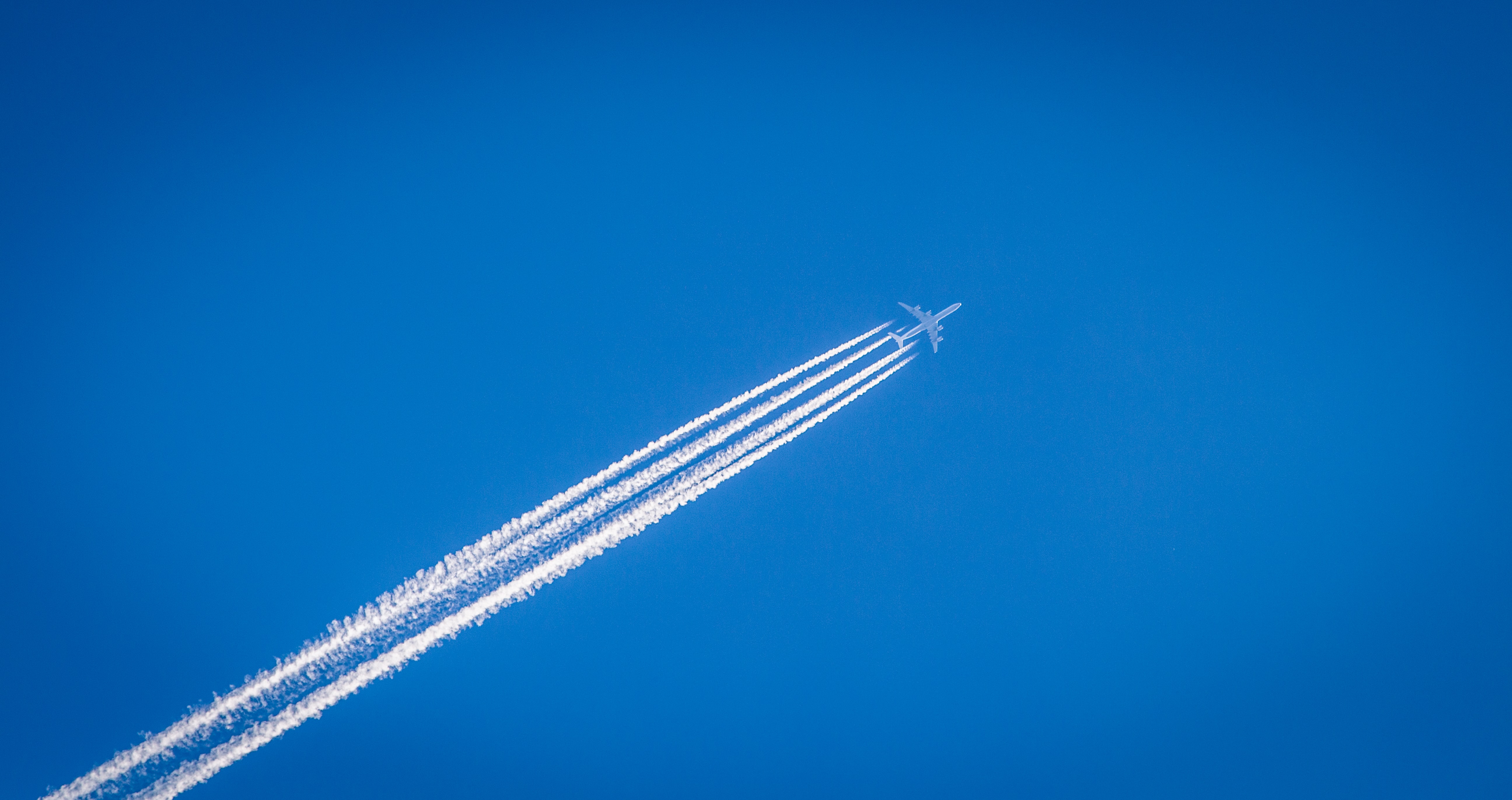
An incentive model to reduce air travel
The University of Konstanz has developed a tool to cut down on academic air travel on a voluntary basis: the carbon tax..
The number of flights by academics from German universities had increased significantly in the years prior to the pandemic. To counter this development, the university adopted its "Air Travel Policy" (ATP) in 2021, committing itself to substantially reduce emissions from air travel. The ATP comprises a whole set of measures, among others, a university-specific incentive model, the carbon tax (CT). Decided upon by the university's Senate and Rectorate, the carbon tax will come into effect on 1 January 2024 with the goal of reducing emissions from air travel.
Reimbursements for academic air travel will now be subject to a tax corresponding to the emissions generated. Researchers pay 200 euros and early career researchers 100 euros per emitted ton of CO2 equivalent into a trust account. A CO2 equivalent is the unit that measures the climate impact of the various greenhouse gases.
Higher proportional charge for short-haul flights
In addition to the emissions-based tax, 50 euros is charged for each trip. As a result, the fee will be proportionally higher for short-haul flights. "This is important because short-haul flights can be replaced by train travel", says Hilmar Hofmann, head of the Staff Unit Sustainability and coordinator of the Sustainable Development Working Group, which developed the carbon tax model jointly with the Mobility working group and various university committees.
Rewards for flying less
At the beginning of the following year, the funds collected in the trust account will be redistributed among the research teams. In line with a distribution key, teams are rewarded whose members fly little anyway, as well as teams whose members have reduced their air travel. "The carbon tax is a proactive and innovative approach to consistently reducing greenhouse gas emissions caused by academic air travel in a way that is suitable for the university context", emphasizes Christine Peter, Vice Rector for Sustainability, Information and Communication Technology at the University of Konstanz.
Toolbox shows possibilities for reducing emissions
Long-haul flights account for 85 percent of the flight emissions of researchers at the University of Konstanz. An important step for reducing emissions is to switch from several short stays to a few longer stays. In order to raise researchers' awareness and inform them about the topic of air travel and emissions, the university provides a toolbox that, for example, highlights ways to reduce air travel. This includes concrete suggestions for alternative travel options, the "cultural transformation" of scientific exchange and the underlying formats, as well as the expansion of digital infrastructure. The vice rector explains: "If each traveller went without their longest flight, we would achieve a reduction of about one-third of emissions".
A "Carbon Tax Club" is now being formed at the university. Initially, each research team is automatically a member of this club, but can later opt out. The carbon tax model will be discussed with the research teams comprehensively. "The carbon tax is a milestone for achieving our emissions targets. At the same time, we want to achieve widespread acceptance for the incentive model at the University of Konstanz, and ensure researchers who work internationally are not put at a disadvantage", says Rector Katharina Holzinger.
Key facts:
- The University of Konstanz developed the carbon tax as a tool to reduce academic air travel on a voluntary basis
- The goal is to reduce greenhouse gas emissions caused by academic air travel at the University of Konstanz
- The carbon tax comes into effect on 1 January 2024
- Measure within the framework of the "Air Travel Policy" (ATP) adopted at the University of Konstanz in 2021
- Contact: Hilmar Hofmann, head of the Staff Unit Sustainability and coordinator of the Sustainable Development Working Group, email: nachhaltigkeit@uni.kn
